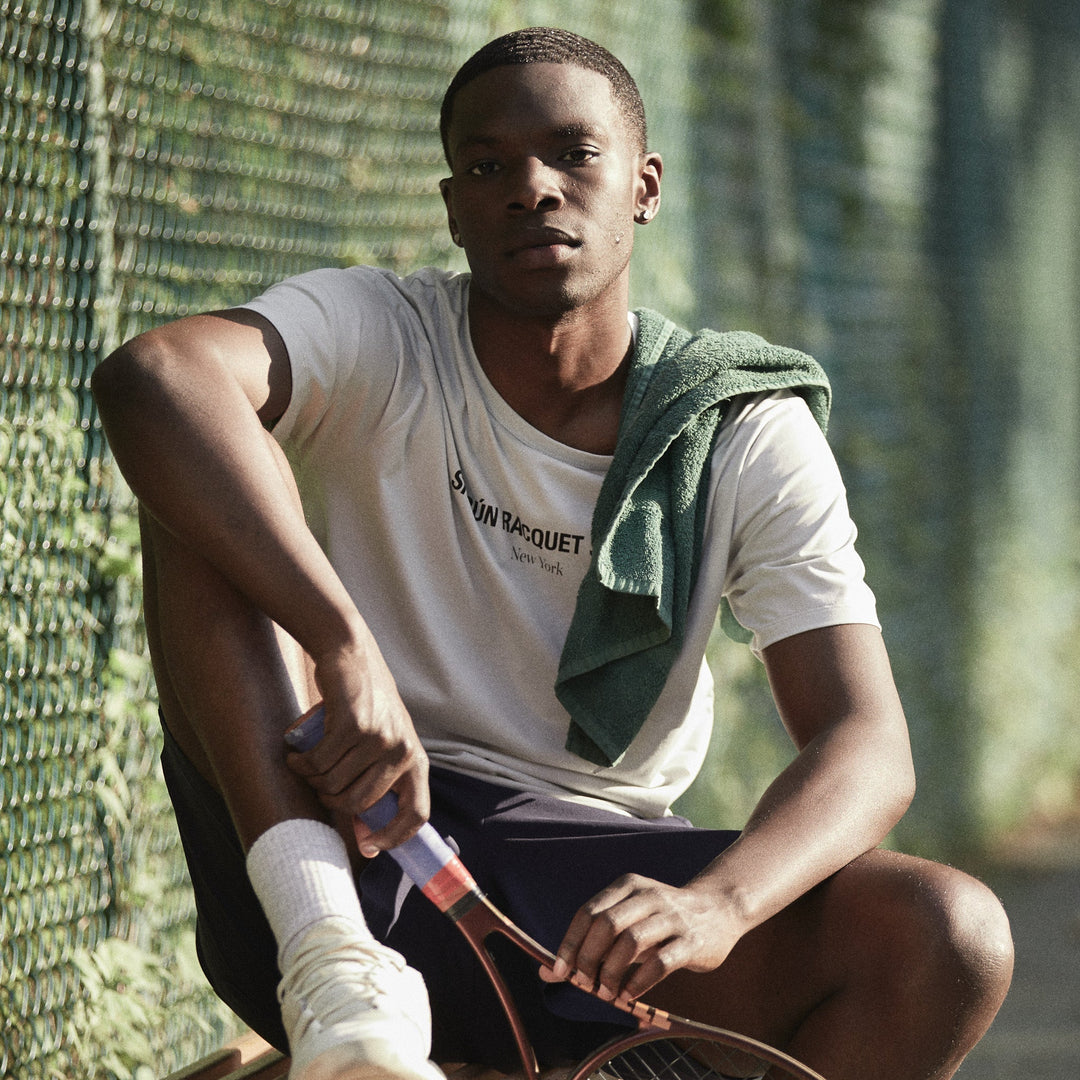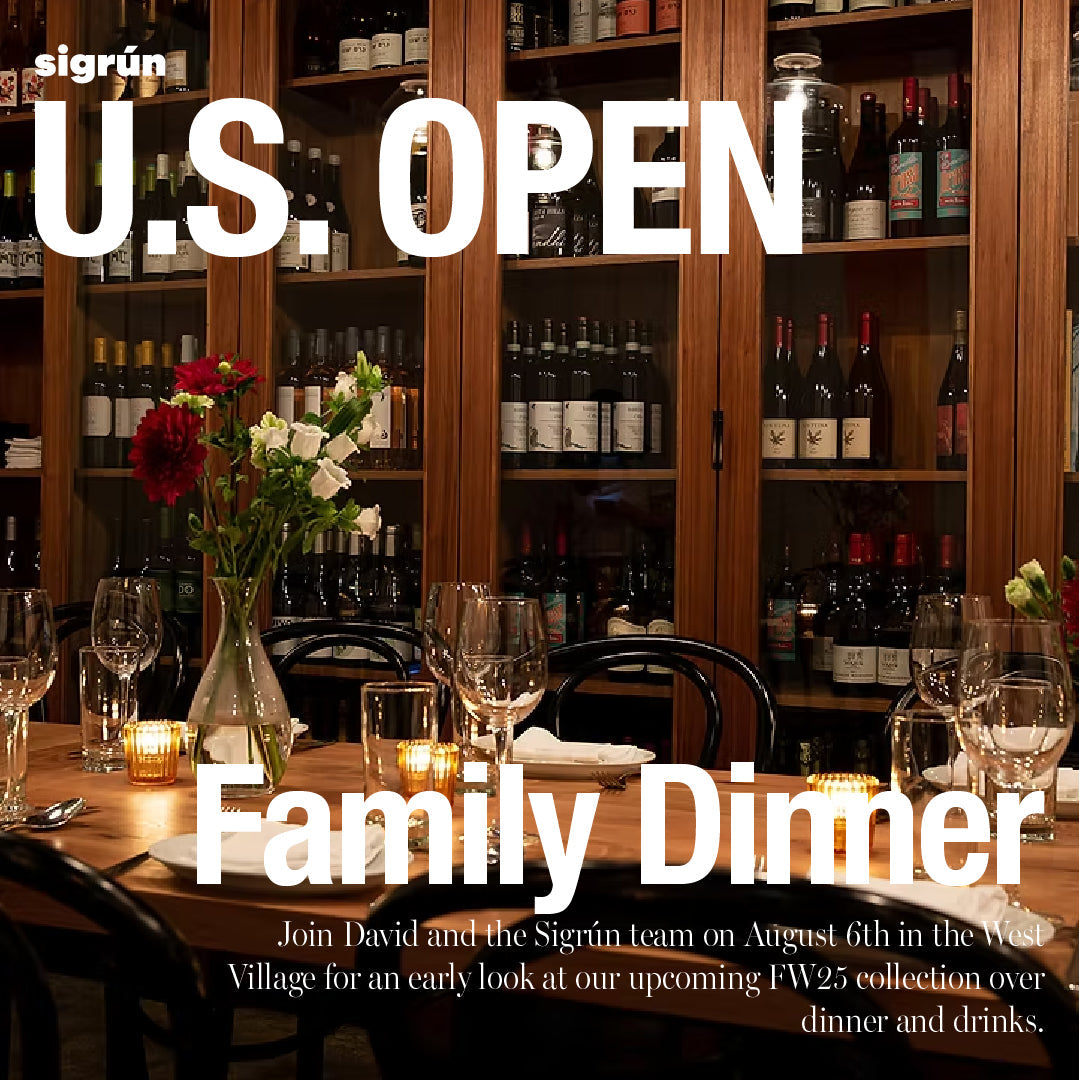Running premiere USTA tournaments in Atlanta – an interview with Turhan Burne

Tournaments are the staple of USTA tennis. Many players start the tournament circuit at a young age and continue throughout their careers. Countless parents take time out of their busy schedules to trek kids across city and state lines for weekends often filled with two matches a day and rain delays.
It takes a lot to put on these tournaments. The Peach State Jr. Championships, which we sponsored this past Memorial Day weekend, had both boys and girls 12, 14, 16 and 18 age groups in both singles and doubles. At a 64 player draw size for singles and 32 for doubles in each group, the level 5 closed event attracts over 600 kids, not counting parents, and is played across 6 different venues. That seems more complex than many ATP tournaments.
We sat down with Turhan Burne, a coach and leader in the Atlanta tennis community and owner of One Love Tennis, which is the event and tournament management company he started in 2000 that runs the Peach State Jr. Championships, along with many other junior and adult tournaments. He’s a man who approaches his work with passion, taking pride in providing exceptional experiences and opportunities. Read on to find out how he got to where he is, what he thinks about running successful tournaments, and where he sees his tournaments going in the future.

Can you tell us a little bit about One Love? What exactly is it? And what do you do?
Basically it’s my company that I use to run different types of tennis events, fundraisers, a lot of tournaments, probably about 30-40 USTA events every year. Girls 12 national hard courts, Atlanta ITF, one of the biggest junior tournaments in Georgia – the Peach State Junior Championships. All ages, adults, kids. I just had an adult event – the Spring Championships, a national level 5 event.
You run both adult and junior events?
Oh yeah. Whenever I run adult tournaments – men and women – I always offer prize money. I probably do an adult tournament once a quarter. I run a lot of tournaments that have Open prize money divisions. I do those to provide a competitive environment for kids coming home from college. I also run the prequalifying tournaments for the Atlanta Open. So I do a lot.
You mentioned before - can you tell us about the Peach State Championships? I know it’s one of the biggest junior tournaments in Atlanta.
It is the biggest in Georgia. Probably about 600 players. It used to be called the Georgia Junior Qualifier. When that changed, there were no more qualifying events. So they came up with the Peach State Championships. I bid it on [the right to run it] and I got it. It used to be the state qualifying tournament for nationals. Now, it’s just a big-name tournament. We try to make it a special event. I give a wildcard into the Atlanta ITF, which you can get through the tournament.

How often are you putting on junior tournaments? And what types of events are they?
I probably run a junior tournament about every month. I got about 3 national 5s, a level 4, and a level 3. So those are pretty big events. Really, I get all levels. It depends on the tournament. The level is based on the kids. But I try to give a competitive atmosphere for all levels and age groups.
I know parents can be a hot topic in Junior tournaments. How are the parents at your tournaments? Okay?
Yeah, they’re okay for the most part. We have a few issues here and there. But I try pretty hard to keep that kind of thing under wraps.
What do you think separates One Love, or Atlanta Junior tennis, from other communities around the country?
I feel that I’m pretty organized. I communicate well. I try to communicate with parents any time something happens. Like right now, it was supposed to rain this weekend, so yesterday I let them know that I would notify them at 2 today [with an update], and I always do. I think people appreciate that. It’s very rare that my tournaments have a long wait. I always try to give a little cushion, and I always plan. I work hard on my events as a whole. I try to get sponsors whenever I can and provide little niceties for all my players.
How do you go about getting sponsors? Is there a way to do that?
Yeah, so I’ve been doing it a long time. Over the years you develop a relationship with people. I have children who played in my tournaments who are now parents. I have people approach me about being sponsors. They like the quality of the brand. And they feel comfortable partnering with one another.

What’s your favorite thing you get out of running these tournaments, or One Love in general?
Satisfying the customer. I think that’s why I’m good at it. Because years ago when I was teaching at a club, one lady told me about a great team captain she had. Whenever that lady sent an email, you felt like she was smiling on the other side. So that resonated with me. A lot of times, when I communicate with people - people often when they email me - they say, “I’m sorry to bother you.” And I quickly say to them “you never bother me.”
I try to treat my company like the Ritz Carlton. When I hire officials – because sometimes you hire officials randomly - I try to hire a lot of repeat officials and let them know this is my brand. You’re not going to let a parent run over you, but you have to be nice and considerate if a parent asks you a question. I get a high when someone texts me, I text them right back. Before they press the last button, I’ve already responded. I pride myself on that.
Since you brought up the topic of officials – what’s something about running tournaments that most people wouldn’t expect? Finding sponsors? Officials? What do most people not know about running tournaments?
That you don’t make much money. You look at the amount of people, and the entry fee, and say oh he’s making a ton of money. And of course, I make some money. But I don’t do it for the money. It’s not nearly as much as they think it is.

You’re doing it out of the love?
Oh yeah I love it. I could sit there all day. Not just watching matches. But running the event, meeting parents, talking to everyone. I know when I first started, I wasn’t as experienced, maybe not even as passionate. At the beginning it was all – oh I’m gonna make money. But my passion grew for the company and the people. And now it’s not about money at all. It’s about providing that experience.
How would you define yourself to other people? Is it a coach? A manager? An event planner?
Oh man, I’m all of the above. I’m an events coordinator, and I’m a coach too. I’ve started coaching a lot again – a few girls who are playing in the state finals this coming weekend. But how I describe myself is just passionate. A passionate coach and a passionate tournament director. I’m just passionate about everything I do. I feel to do well in business, and in life, actually, you just have to be passionate about what you involve yourself in. When I coach, I hand select people. I find the type of people I want to be around. The level of player I want to coach. And if you do that…I mean it’s booming, it’s gratifying.
You see a lot of good junior players and their parents. Anything you notice that the most successful juniors are doing to have success? And maybe what the parents are doing to help their kids?
Well first of all you got to find a quality coach. And that’s not always easy to do. Because everyone thinks they’re a quality coach. But I think what a lot of coaches miss is – again – that passion. A lot of times with tennis, you got people who played tennis, maybe they didn’t focus as much on what they’re going to do outside of tennis. So they end up teaching tennis. They get older and get burned out but they still teach tennis because that’s how they get paid. So you have a lot of parents who get stuck with a coach who is not studying, doesn’t have mentors, isn’t trying to learn. I give credit to my mentors. For like 15 years, I asked them questions about everything I didn’t know, even running tournaments. And I kept doing that, learning, until I knew what I was doing.
That’s so accurate about the coaching. Any tips for finding that right coach?
I think you find that right coach like you find anybody else. You know, if you got a parent who’s sick, who you really love, you’re not just going to go to any doctor, you’re going to look for the best. And I think with tennis, it’s like, if you’re trying to get to a real high level, why wouldn’t you find a coach who has a record of developing high level kids. Right? Or why don’t you find a coach who has a good record of laying a good foundation for young kids. So I think that’s what happens. People don’t look hard enough.
That’s great. And before we go, anything else you want to tell us about you, your company, or Atlanta tennis in general?
Oh man, I think Atlanta tennis is great. I’m having the time of my life. You know, I used to teach a lot of high-level players. That was my career path initially. I was working with a lot of juniors. I was one of the coaches who helped Grace Min (female pro from Georgia) get to where she is. For years, I was just teaching juniors and I never really did much else. Now I’m deeply passionate about adults and recreational players. Especially the beginning ladies who just want to get better. I feel like when I find that player who really wants to get better, it doesn’t matter who they are. It’s just as gratifying as taking a kid to the National Level 1. I’m having a good time.

What do you think is in store for you in the future? The rest of your career?
Just being a little more…making my tournaments events, maybe add some entertainment. I’ve done that a couple times, had a guy who played piano come out. But to do that, get better at that, get bigger events, more sponsors. The more sponsorship you get, the more fun you can make it. I see that coming up next where…I just want to blow people’s mind where, when you paid your entry fee money you didn’t just come, hit some balls, and leave, you hit some balls and also had an opportunity to get prizes. For my girls 12 [years old], I’m having a parent-child event. I did a talent show one year. I want to have a parent appreciation night. Because, I think, when you run tournaments, it’s always geared towards the kids, but the parents are the ones spending the money, and they’re doing the travel, and they’re the ones making it possible for the kids to even be there. So I want to start doing things for the parents. I want my tournaments to be events.






